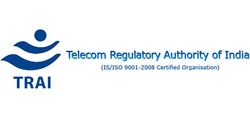February 25, 2015, the Telecom Regulatory Authority of India - Trai changes for the sixth time its regulation to increase the portability of mobile telephony

The regulation of electronic communications is carried in India by an independent regulator, the Telecom Regulatory Authority of India - Trai..
This regulation aims in particular to develop competition in an important domestic market. For the development of competition, should be encouraged not only increase in consumption, new uses, innovation, but also the competition between suppliers.
For this, the portability of telephone numbers is essential. We find this issue of portability in other sectors, such as financial or energy sectors, but it is in the area of the phone portability turned into right because it is through the number that the person is called, or classified, or recognized
This portability is imposed with difficulty by regulators. The situation in India demonstrates.
The principle of number portability in the mobile phone sector was made by a regulation in 2009 by the Telecommunication Mobile Number Portability Regulations of 23 September 2009, the eighth addressing this issue.
Almost every year, a regulation adds to the previous regulations on this point. Thus, February 25, 2015, the regulator adopted a regulation 4 pages carrying the 6th amendment of the original text.
After the new system adopted by the regulator at the request of the Government who sent a letter to this effect November 23, 2014, as apparatus shown to increase the effectiveness of portability, it is mandatory that from may 3, 2015, any subscriber can change operator while keeping his phone, regardless of his place of residence in the country.
The difficulty comes precisely from the geographical vastness of the country, divided into 22 telecom service areas (called "circles"), the customer physically moving from one to another still having difficulty keeping his number.
Beyond the difficulty of passing the enactment of a principle to the reality of its application, since 6 years apart from each other, here we measure the importance of geography in Regulation.

your comment